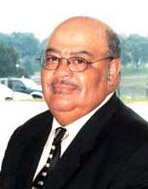Student-Athletes Checked on Drugs, Gaming
|
The hallway floors of the Compliance Office at the Howard University Athletics Department are filled periodically with an array of awkwardly positioned student bodies. The student-athletes are trying to create their own surfaces to write on, sometimes using their legs and arms.
They are filling out paperwork, checking on eligibility or just swinging by to say hello to Adrea Washington, the assistant director of compliance, or A.B. Williamson, the head director. On the walls are posters from the National Collegiate Athletic Association, warning student-athletes of the consequences of professional, collegiate or high-school gambling, and of using illegal substances. The posters contain such phrases as: "You bet you'll lose," insisting that student- athletes would lose the bet to the NCAA if they chose to gamble on athletic games. A poster reading, "Your Career Could Go Down in Flames" shows an African American man holding $20 bills in his hand as $100 and a marijuana joint burn from his grasp. The images are potent. The stated consequences are suspension for a year or immediate ouster from school. "We are responsible for so much here in Compliance," Williamson said. "We make sure that the students are certified in the participation terms of NCAA rules as well as the MEAC conference,� referring to the Mid-Eastern Athletic Conference. �We maintain records on eligibility, verification of degree completion and budgeting of coaches and students. [There is] so much we are responsible for looking after, and I must declare that making sure that students are drug-free and gaming-free is one of our major agendas here at Howard University. We simply don't tolerate it." To make sure that students are fully aware of the drug policy at Howard and at the NCAA and MEAC, each student is asked to fill out an NCAA drug-testing form and an NCAA gaming form that spells out its regulations. Also enclosed in the typical athlete's paperwork is a Howard University drug policy form that outlines the cooperation needed from students to pursue a college career at Howard. "The reasoning behind two different drug forms-- one coming from the NCAA and one being from us here at Howard-- is that different testing for different sorts of drugs are completed by both parties,� Williamson said. We, here at Howard, test for more commonly known drugs such as marijuana, heroin and cocaine; whereas the NCAA looks specifically for 'performance drugs' that stimulate or manipulate a player's natural capabilities or talent." A first offense requires suspension, depending on the nature of the drug, or the extent of the gaming. A second offense calls for suspension and an in-depth investigation, and the third offense usually calls for expelling the athlete from the team and/or the university. Additionally, the compliance office has the option of forwarding the information to the NCAA. Howard is not obliged to provide the results of its drug testing, but must relay all information regarding gaming. Do the posters, compliance information sheets and pamphlets, and team and coaches' meetings really spread the importance of being drug- and gaming-free? "Sometimes I joke about the 'you will go down in flames' poster, but it's real serious,� Howard wide receiver Thyron Lewis said. �Participating in either gaming or drugs will mess [you] up. It's pointless and there really is no reason to do it." Andre Williams, a first-year track and field athlete, agreed. "You see [the posters] everywhere. They're in Compliance, in Burr Gymnasium, and in all of the coaches' offices, besides the fact that we have meetings on them. I am a first-year student here at Howard University and I am fully aware of my responsibilities as an athlete here on this campus." Andre Beasley, assistant athletic director, said, "Compliance has done an excellent job creating atmosphere in which students have no choice but to be aware of what is anticipated from them. The posters, meetings and forms are all exceptional measures to ensure that students as well as athletics here at Howard stay afloat." Posted March 28, 2005 |
https://blackcollegewire.org/sports/050328_compliance/
|
Home | News | Sports | Culture | Voices | Images | Projects | About Us Copyright © 2007 Black College Wire. Black College Wire is a project of the Black College Communication Association and has partnerships with The National Association of Black Journalists and the Robert C. Maynard Institute for Journalism Education. |
